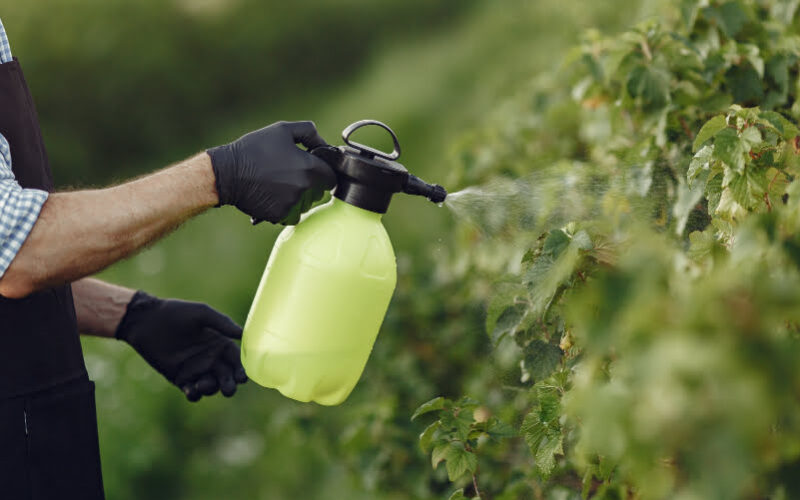Is it worth paying more for pesticide-free, organic food?
What is the history of pesticides?
Pesticides are chemicals used to improve the growth function of crops by removing pests that interfere with their growth. About 4,500 years ago, people used sulfur as a pesticide to protect crops from pests. In 1800, synthetic organic compounds were used to make powerful pesticides, but they are no longer used due to side effects. Currently, pesticides using synthetic organic compounds with low risk are used (Goddard, 2012).
Why do we use pesticides when we farm?
If crops are grown without pesticides, they will be greatly damaged by pests and the yield will be reduced. In particular, we have come to use pesticides in farming because, in relation to food problems, a decrease in yields is likely to lead to problems such as starvation (D’Alessio, 2022). The use of pesticides improves the quality of agricultural products as it can protect pests and crops and has the advantage of maintaining a constant crop yield, so agriculture using pesticides continues.
What are the disadvantages of using pesticides?
1) What happens when we eat food grown with pesticides?
Pesticides are harmful to our bodies, so we have to pay attention to the exact amount, timing, and frequency of pesticide use. However, even if these standards are observed, pesticides remaining in crops may exist. In particular, children with low immunity can develop behavioral disorders if frequently exposed to pesticides, and pregnant women are likely to cause diseases such as miscarriage and autism (Park, 2019).
2) What are the environmental effects of pesticides?
Using pesticides will contaminate the soil. It takes a long time for this contaminated soil to be restored to its pristine condition. Also, pesticides remove insects such as bees that farm and help the environment. There is a problem that if these helpful insects disappeared, there could be more damage caused to crop growth.
3) How can we do eco-friendly farming without using pesticides?
Pesticides play a role in eliminating pests. Ducks feed on pests and weeds, similar to pesticides, and they are easily removed, so they can be farmed without using pesticides. And since duck waste acts like soil fertilizer, it is an eco-friendly farming method that improves soil quality (Berkjout, 2020). It also uses a rotation method that can grow multiple crops in the same field. The rotation method reduces plant diseases, can suppress pests without the use of pesticides, and can produce high-quality crops (Chibuike, 2021).
Conclusion
Pesticides can help the growth of farms and produce high-quality crops by removing pests and weeds that interfere with the growth of farms. However, we should not rely on pesticides because they damage the environment and increase the risk of illness for humans as well. That is why we should reduce human and environmental damage by using eco-friendly farming methods that do not use pesticides.
References
– Berkjout, N. (2020). Ducks on the front line of eco-friendly pest control. [online] Poultry World. Available at: https://www.poultryworld.net/poultry/other-species/ducks-on-the-front-line-of-eco-friendly-pest-control/ [Accessed 16 September 2022].
– Chibuike, B. (2021). 5 Best Eco-Friendly Farming Practices to Ensure Sustainability. [online] hellonimbly.com. Available at: https://hellonimbly.com/5-best-environment-friendly-agriculture-practices-to-ensure-sustainability/#:~:text=1. [Accessed 16 September 2022].
– D’ALESSIO, V. (2022). Organic pesticides to provide natural protection for endangered crops | Research and Innovation. [online] ec.europa.eu. Available at: https://ec.europa.eu/research-and-innovation/en/horizon-magazine/organic-pesticides-provide-natural-protection-endangered-crops [Accessed 16 September 2022].
– Goddard, J. (2012). [History Lesson] Humble Beginnings. [online] PCT – Pest Control Technology. Available at: https://www.pctonline.com/article/pct1212-origins-pest-control/ [Accessed 16 September 2022].
– Park, A. (2019). A Mother’s Exposure to Pesticides During Pregnancy May Raise Children’s Autism Risk. [online] Time. Available at: https://time.com/5555300/pesticide-exposure-autism/ [Accessed 16 September 2022].
